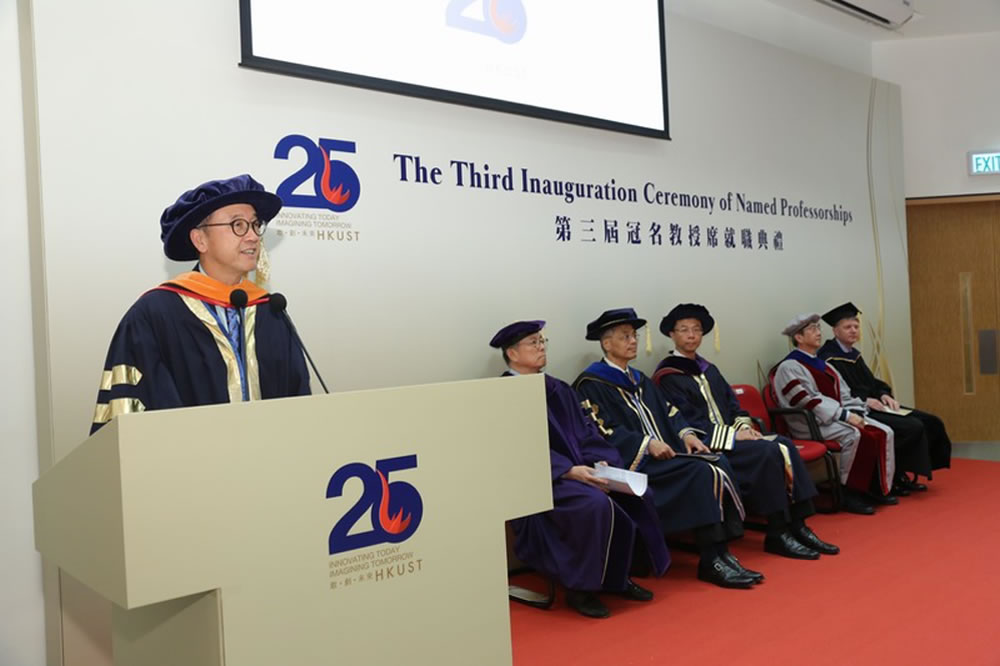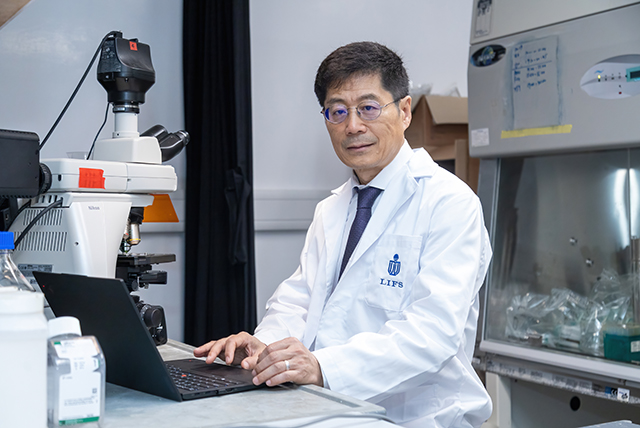Alzheimer’s disease (AD) is the most common type of dementia, which progressively destroys memory and cognitive skills. With its prevalence rising rapidly and causing untold suffering to patients, their caregivers and society, researchers are looking for innovative ways to address this growing public health concern. HKUST’s Professor Guojun Bu, who currently serves as Lo Ka Chung Charitable Foundation Professor of Science, is one of them.
Professor Bu is a world leader in the field of apolipoprotein E (apoE) and apoE receptors, which play critical roles in the development of AD and related dementias. His primary interest lies in understanding why apoE4 is a strong genetic risk factor for AD and how this gene and related molecular pathways can be targeted for therapy.
Prof. Bu received his Ph.D. in Biochemistry from Virginia Tech and completed his postdoctoral training at the Washington University School of Medicine in St. Louis, with a focus on cell biology and neuroscience. His early work used cell biological approaches to unravel the mechanisms of biogenesis and endocytic trafficking of LRP1, a large endocytic receptor involved in the pathogenesis of Alzheimer’s and other neurodegenerative diseases. His lab systematically dissected the cell type-specific function of LRP1 using conditional mouse models.
Professor Bu was appointed Chair Professor and Named Professor in HKUST’s Division of Life Science in August 2023, following a host of prestigious career appointments. These include Chair of the Department of Neuroscience and Named Professor at Mayo Clinic; Chief Scientific Officer of SciNeuro Pharmaceuticals, and Professor of Cell Biology and Neuroscience at Washington University in St. Louis.
In the last 15 years, Professor Bu’s research has focused on the pathogenic mechanisms of apoE using humanized mouse models and induced pluripotent stem cell models. Among the many important discoveries made using these models, his lab has found that apoE4 seeds amyloids, considered to be the driving force for the development of AD. They have also shown that apoE2 plays a critical role in enhancing brain lipid metabolism and cognition, leading to protection against Alzheimer’s disease.
Complementing their model system studies, Professor Bu’s group also uses human biospecimens, including postmortem brains and cerebral spinal fluid, to discover new pathways and biomarkers. His lab is also devoting significant efforts to discovering and developing therapeutics based on apoE and other targets with the goal of preventing and curing Alzheimer’s disease.
This ground-breaking work has shaped the landscape of research on AD and other neurodegenerative diseases for over two decades. Professor Bu is a “Highly Cited Researcher” according to Web of Science and has published more than 350 high-impact articles, with over 40,000 citations on Google Scholar. He has received numerous honors and awards, including the Zenith Fellows Award from the Alzheimer’s Association, the Investigator of the Year award from the Mayo Clinic, and the MetLife Foundation Award for Medical Research in Alzheimer’s Disease. He is an elected Fellow of the American Association for the Advancement of Science and Founding Editor and Editor-in-Chief of Molecular Neurodegeneration, among other key recognitions in the field.
HKUST is proud to appoint this outstanding scholar as Named Professor and to support his efforts to tackle one of the most pressing public health concerns of our age.















